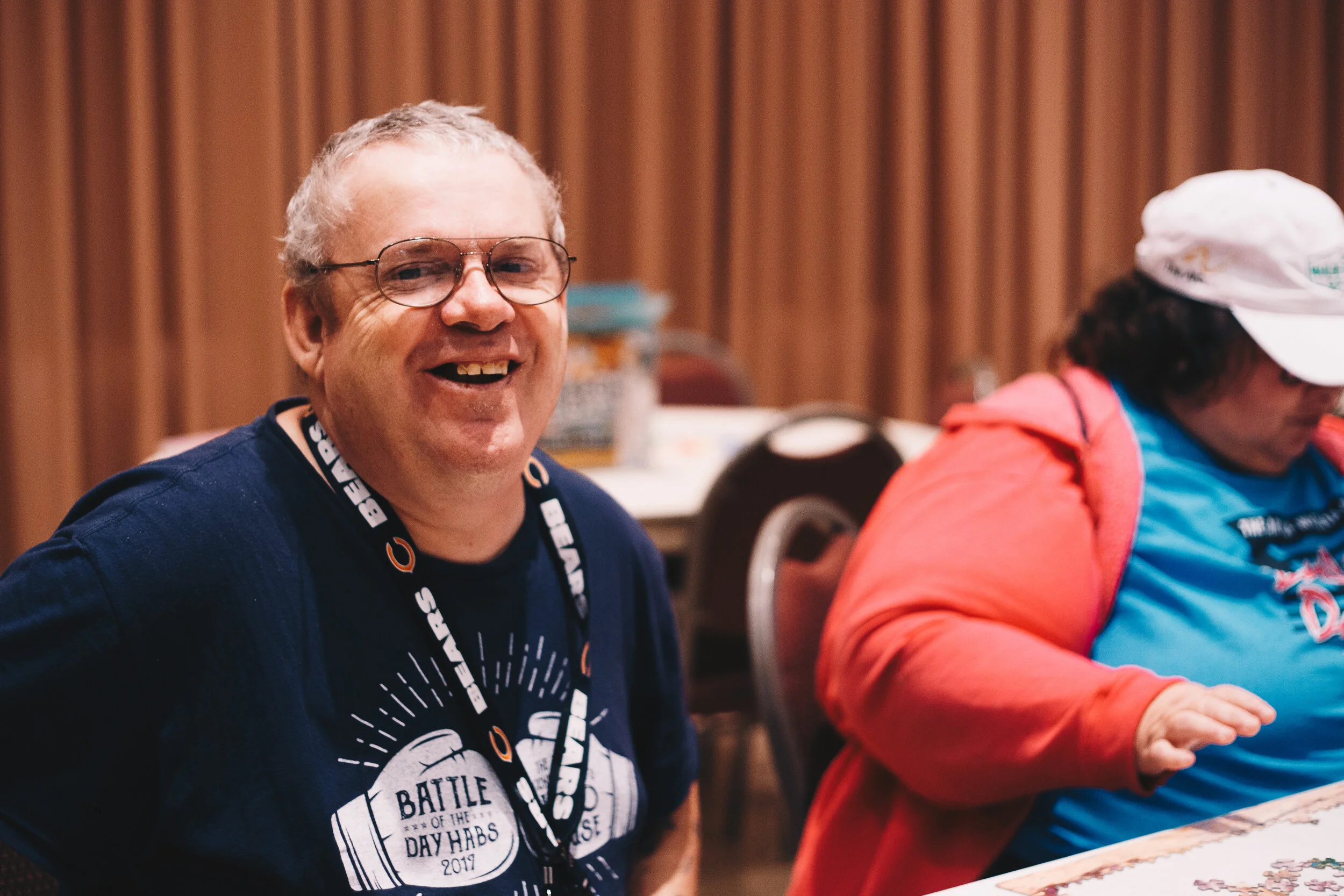This blog post was written by Dr. Frank Del Rio, Psy.D., LPC, CART
Everyone knows that the holidays can be rather chaotic in and of themselves. The coming and going of relatives, the seemingly eternal bustle of shopping and preparing for Christmas, and the perception that there is never enough time in a day to get everything done. For many people, despite the holidays being a time of good cheer and merriment, they are more often filled with stress and tight schedules to make sure that everything gets done in an orderly fashion – if it gets done in any fashion at all.
For those who have even weightier troubles, such as Autism or Sensory Processing Disorder (SPD), Christmas time and the holidays in general can be an absolute nightmare. Daily schedules are all but abandoned as people attempt to coordinate plans for getting together, people are in and out with what appears to be no rhyme or reason, and a lot of what makes Christmas so stressful for people is navigating among everyone else in the outside world who are also trying to get their holidays absolutely perfect. For those with Autism and SPD, this can be especially hectic. So for those who are trying to coordinate a happy holiday as well as accommodate the needs of someone with Autism or SPD (and they are important to accommodate), here are a few holiday tips to consider. These tips are written towards children but are effective for adults with Autism or SPD as well.
1) First and foremost, don’t be afraid to acclimate Christmas to your child’s needs. If your child has specific eating habits or may very likely reject Christmas dinner somewhere else, you should feel encouraged to have a meal specifically catered to him or her.
2) It is also a good idea to arrange the personal atmosphere that best suits your child’s needs. Noise canceling headphones are a good idea, or if your child uses an iPad or other electronic device to serve as distraction, it would be in your best interest to have it on hand if you are going out to visit family or friends. Make sure to bring a weighted blanket and sensory tools as well.
3) Should you feel the need to keep Christmas small for your child, do not hesitate. It is okay to limit visitors with time limits so as not to overwhelm your child, or even just to have Christmas with your immediate family to keep things simple.
4) And while on the topic of simple, be mindful of things that impact the senses; try to keep aromas, noises or music, and lights as minimal as possible.
5) Try to avoid bringing your child to shop whenever possible; crowds of people in stores and malls can be disconcerting. If you are faced with the need to bring your child into public situations where he or she may feel less at ease, it is important to make them aware of these situations in advance. Reading social stories can be a good way to prepare your child for upcoming events so they will not feel as put upon as they might without warning.
6) Visiting Santa can also be prearranged; some places accommodate children with sensory processing disorders, so scheduling visits in advance could work to everyone’s benefit.
7) Be aware of warning signs should your child start to feel uncomfortable as well, and don’t be ashamed of withdrawing from a situation for the benefit of your child.
8) It may also be beneficial to stretch Christmas over a period of days. Normally, Christmas involves a lot of traveling, a lot of people, a lot of presents, and a lot to take in. Allowing a child to open a few presents a day as opposed to everything at one time could make the holidays pass more easily. So don’t be afraid to stretch the celebration from one or two intense days to several days of calmer festivities.
9) Finally, it is important to praise your child for good behavior and for coping with what might be stressful situations.
10) Allow for periods of time where they can be expressive: running, jumping, twirling, whatever they may do and make sure to keep separate space for them to calm down should the need arise.
Try as we might, there are almost always pockets of time when Christmas becomes overwhelming for all of us. Accommodating this need beforehand for your child could save them some unwanted reactions. But, most of all, make sure that Christmas suits your family entirely. It doesn’t need to be like everyone’s Christmas as long as you are enjoying yourselves and the time you have together. Have a fun, safe and Happy Holiday season!
